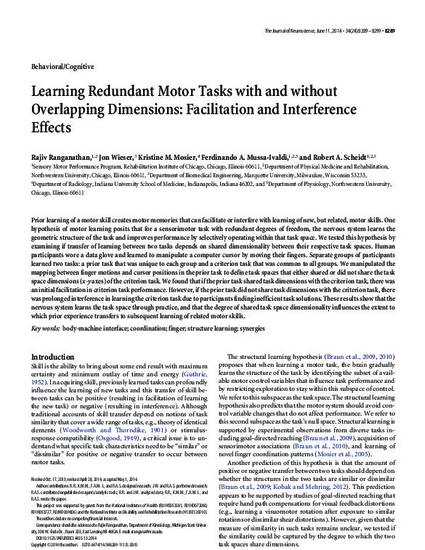
Prior learning of a motor skill creates motor memories that can facilitate or interfere with learning of new, but related, motor skills. One hypothesis of motor learning posits that for a sensorimotor task with redundant degrees of freedom, the nervous system learns the geometric structure of the task and improves performance by selectively operating within that task space. We tested this hypothesis by examining if transfer of learning between two tasks depends on shared dimensionality between their respective task spaces. Human participants wore a data glove and learned to manipulate a computer cursor by moving their fingers. Separate groups of participants learned two tasks: a prior task that was unique to each group and a criterion task that was common to all groups. We manipulated the mapping between finger motions and cursor positions in the prior task to define task spaces that either shared or did not share the task space dimensions (x-y axes) of the criterion task. We found that if the prior task shared task dimensions with the criterion task, there was an initial facilitation in criterion task performance. However, if the prior task did not share task dimensions with the criterion task, there was prolonged interference in learning the criterion task due to participants finding inefficient task solutions. These results show that the nervous system learns the task space through practice, and that the degree of shared task space dimensionality influences the extent to which prior experience transfers to subsequent learning of related motor skills.
Available at: http://works.bepress.com/robert_scheidt/5/
Published version. Journal of Neuroscience, Vol. 34, No. 24 (June 2014): 8289-8299. DOI. © 2014 Society for Neuroscience. Used with permission.